|
http://www.usccb.org/bible/readings/040520.cfm
When you hear “Lent,” or “Stations of the Cross,” what comes to mind? Is this just an annual season before the Easter festivities, or a must-follow ritual the Church demands of you? Or, is this a period you can truly focus and reflect on the mystery of God’s love for mankind – and the mystery of one man’s sacrifice and passion for all (including those He was yet to meet, like you and I)? Some years ago, during a discussion among friends, one person asked, “what’s the point of going through Lent and the Stations of the Cross all over again when Jesus did that already?” and the response was, “if we put ourselves through the Stations of the Cross meaningfully, we are able (even just for a few days) to put our feet in Christ’s sandals so that we would also learn to love (even to death) all mankind; regardless of how often we are hurt in the process.” The Passion of Christ demonstrates how much we are loved and how far God will go to show love to us. Sometimes, I think Jesus may have wanted to change His mind while praying in Gethsemane, where he sought God in the midst of sorrow and distress. Sometimes, we also feel sorrow, anguish, and distress. If given the power, we would ‘run out’ of our lives. How often have we come to that point of not wanting to go any further? How often have we thought, “I’m not sure I can do this”? I know I have. Jesus turned to God for comfort and reassurance. Who do you turn to during the tough times? Focus on Spirituality: When everyone Jesus knew had either ‘sold Him off,’ denied Him, or run away for their own safety, it must have felt as though He had been abandoned by those he had thought loved Him so dearly. Even today, there are people all around us who feel abandoned and do not know where or who to turn to. Today, as we ask Jesus where He would like to celebrate Passover, His response is: “I would like to celebrate Passover in your heart.” Have you prepared your heart for the Passover feast? If we also ask Jesus, “who would you like to celebrate it with?” I am sure His response is: “the lonely, the broken, the anxious, the weary, the frightened, and the sick and with you.” As we prepare our own hearts for the Passover feast, let us extend Jesus’ invitation to those in need on His behalf. PRAYER LORD, thank You for choosing my heart to celebrate the Passover; teach me to prepare my heart so that You would have the best Passover feast. As I send out Your invitations, help me look out for the hearts that need You- help me look beyond the cover-up smiles; and as I give out these invitations of hugs, laughter, smiles, joy and comfort, may I remember to take my seat at the table to feast with You. Amen! Service Suggestion: Journey with Jesus through the Stations of the Cross - may it not be out of a sense of obligation but because You know that Jesus needs a friend who will walk with Him through His rise and falls on this journey. Do not look too far, there may be someone closest to you who needs a friend or a listening ear for a short journey. As you take this journey, allow Jesus to prepare your heart not just for the Passover but for all His celebrations and may the way you speak and live give you away (like Peter’s speech betrayed him). To learn more about faith-based service opportunities, please click here. Benita Amoako is a St. Joseph Worker Program NY Alumnae.
1 Comment
“And a sword will pierce through your own soul also.” -- Luke 2:35 I have a tradition of watching Mel Gibson’s The Passion of the Christ every year, usually on Good Friday. However, this year I decided to watch it on Ash Wednesday to prepare me for Lent. Every time I watch it, something new stands out to me. This year, I noticed with particular clarity how Mary follows Jesus throughout every step of His Passion and, more specifically, the effect it has on Our Lord. Whether it be His arrest, scourging, or His walk towards Calvary, every time He locked eyes with Mary, His energy was replenished and His courage renewed. Granted, this is from a film, but it isn’t that difficult to imagine. The love that Christ had for His mother is beyond anything we can conceptualize. I’ve always found this—and her—to be somewhat mysterious and always a little bit beyond my reach of understanding. But I think reflecting on her title of “Our Lady of Sorrows” can encourage us to suffer well, especially during this Lenten season. Mary, perfectly united with the will of her Son, was always completely open to His grace and His love. Along with this perfect unity, however, came the most intense and acute suffering ever suffered after Christ Himself. It is said by many saints, including St. Ephrem, St. Ambrose, St. Bridget of Sweden, and St. Alphonsus Liguori, that Mary suffered an interior, emotional crucifixion during the Passion of her son. Additionally, due to her sinless nature, the intensity of her suffering during Christ’s Passion was beyond anything we can imagine. St. Bernardine of Siena once said, “the grief of Mary was so great that, were it divided amongst all men, it would suffice to cause their immediate death.” This suffering of Our Lady of Sorrows, so beautifully depicted in the film, is ironically comforting. Mary is the ultimate example of not only how to suffer, but also how it can glorify God if fully embraced. She shows us that even through our suffering we can fulfill the will of God. One can argue that much of her life—beginning with the prophecy of Simeon and continuing through the laying of Christ in the tomb—was lived in some degree of suffering, especially knowing what would befall her Son. But because she was completely devoted to the fulfillment of the will of God, her suffering was redeemed in and through the glory of the resurrection of Christ. The film depiction of Christ looking to His mother is also something we can learn from this Lent. Mary can be a source of strength and encouragement as we continue to do works of prayer, fasting, and almsgiving throughout these forty days. Mary suffered quietly and faithfully. She stood with her Son at the cross until the end, knowing in faith that his Passion and death would fulfill God’s plan and bring salvation to mankind. What can we take from this? Our Lady of Sorrows shows us that suffering well--that is, directed in union with God’s will-- can glorify Him and help us along the path to our salvation. This Lent, as I meditate on her walk with Christ toward Calvary, I am refreshed in the knowledge that our suffering doesn’t need to have a bitter end. If unified with Christ it can, and will, be redeemed in and through Him in eternal life. How can we make our walk through the desert and toward Calvary this Lent look more like Mary’s? \We are once again in the midst of the liturgical season of Lent. These forty days before the Triduum are opportunities to prepare ourselves to enter into the Passion of Christ through penitential practices such as prayer, fasting, almsgiving, and self-sacrifice. Done correctly, our Lenten practices can be cathartically cleansing as we imitate Christ’s forty days in the desert after His baptism. This incredible withdrawal of the Lord from the outside world to dwell on the calling of His Heavenly Father before the commencement of earthly ministry remains a model for us all. During Lent, the faithful do not isolate themselves from the world in fear but rather draw strength from Christ. Shaking off the comforts and complacencies of living in the world may be a bit jolting, but our ultimate goal is holiness; anything else is just a noisy distraction which can never truly satisfy our deepest desires. Today, technology has become integrated into our lives and relationships. Social media, the internet, and the incredible utility of our smartphones may occupy a large part of our daily attention. It’s no wonder we can find it harder to disconnect from the outside world. Indeed, while the proper and moderated use of technology can be beneficial, observing the dangers of failing to unplug from the world (i.e., harming real human connections), has helped deepen my appreciation for the isolation opportunities afforded by Lenten observances. Lent calls each of us to remember the ultimate sacrifice God Himself made on Good Friday. This salvific act is so significant that it cannot be restricted to just one day on the liturgical calendar. The Church commemorates Jesus’ Last Supper, Passion, and Death during the Triduum. As these days draw near, the faithful are called to prepare themselves to enter into the Paschal Mystery by putting aside our worldly comforts and imitating how our Lord spent precious time among His disciples before His death. While Lent is an increased time of preparation and time of intentional growth in holiness, the Church has no shortage of opportunities to deepen our relationship with the Lord year-round. Sunday Mass offers us the spiritual nourishment and proper grounding to start each week. The choices we make in the hours or days following Mass can build upon the scriptural and sacramental foundations laid during the service. Recommitting ourselves to our families and their needs can strengthen the love binding us together; praying with and serving each other builds up the domestic church. For example, volunteering to lead devotional prayers together as a couple or family is a beautiful expression of intimacy and faith. Additionally, during Lent and beyond, we may replace screen time with spiritual reading so we can be inspired by the writings of saints or theologians and discover new avenues of holiness for our lives. Certainly, we can sacrifice a worldly comfort during Lent, but we can also perform charitable works and make a difference in the lives of others during this season. Lent is not a diet! Lent is intended to bring us closer to God, Who is found not in the noise of the world, but in the quiet whisperings of an open heart. Prayer enables us to make room in our hearts for Him to dwell in the temples of our bodies and radiate through our lives. We cleanse ourselves of distractions that prevent us from the holiness He calls us to and we commit ourselves to prayer, fasting, and almsgiving. We repent of our sinful shortcomings and avail ourselves of the sacraments of the Church. Our desire to accompany our Lord can be fulfilled by our faithful vigilance in Eucharistic Adoration, especially in the nighttime hours when our “spirit is willing, but the flesh is weak.” Our Lord is present in the Eucharist we receive at Mass, the Sacrament we adore, the family we are a part of, and the people we serve. He is always ready to not just be a relegated part of our lives, but the core of our very being. The season of Lent can serve to motivate us to choose the better part rather than be complacent in the empty comforts of the world. Though we seek isolation from the distractions of the world to accomplish a meaningful and fruitful Lenten observance, we are promised by the Lord God Himself that we never walk alone when he says: “I am with you always, until the end of the age.” For more resources to accompany you throughout your Lenten journey, please click here. As Americans gather around the dinner table for the annual Thanksgiving meal, families have the opportunity to recall and be thankful for the blessings in their lives. The true focus of this national occasion is not simply to marvel at the bounty of food upon the table, but to acknowledge the labors and gifts which directly and indirectly impacted one’s quality of life. As Christians, we know that all thanksgiving is oriented towards God as families join hands and bow their heads in prayers of gratitude. Attitudes of gratitude don’t need to be restricted to the fourth Thursday of November, but can be prevalent in our hearts, minds, and daily lives throughout each year.
True expressions of thanksgiving are rooted in the acknowledgement that nothing in this life should be taken for granted. The blessings of life ultimately come from God’s innate goodness, and Scripture details many occasions of gratitude to God that are often accompanied by offering sacrifices or praise. We read in the psalms, “I will praise God’s name in song and glorify him with thanksgiving” (Psalm 69) and “Let us come before him with thanksgiving and extol him with music and song.” (Psalm 95) Thessalonians reminds us to “give thanks in all circumstances” and Ephesians similarly admonishes us to “always giving thanks to God the Father for everything.” Thanksgiving is a fundamental component of a life of faith. Furthermore, the sacrifices God is interested in include the sacrifice of our pride in favor of humility, the sacrifice of personal desires and wants in favor of trust in His will, and the sacrifice of sinful behaviors in favor of living the life of holiness God has desired for us. As Catholics, we are infinitely grateful for the ultimate sacrifice of Christ upon the cross and the means God Himself has instituted for our embrace of the gift of salvation. As such, the highest form of prayer on earth is participation in the Holy Mass and the direct reception of Christ’s body and blood in the Holy Eucharist (which itself means “thanksgiving”). Thanksgiving disposes our hearts to more fully receive Christ and be transformed by His love. By imitating Jesus, who broke bread and gave thanks to His Heavenly Father prior to his Passion, we are given the strength to similarly give thanks in all circumstances and grow more Christ-like as a result. Of the many pieces of spiritual advice I’ve been given by priests, the reminder to grow in gratitude for what God has given me is a constant opportunity to realize my utter dependency on His providence. In gratitude lies true joy. This Thanksgiving, I invite you to celebrate an attitude of gratitude that overflows into the new year and the years to come. Our lives are unmistakably touched by the actions and values of our personal heroes. Many of us looked upon our parents as our first heroes, later adding to their exalted ranks the likes of athletic legends, first responders, teachers, coaches, and others whose passion and commitment went above and beyond in order to make a difference. Even today, heroes walk among us in their duties to God, country, and community: many have answered the call to serve in the armed forces, some are called to religious ministry, and others seek to defend and uphold life through witnessing to life and serving on the margins of society. Many live their lives simply, with no fame or fanfare, as they faithfully seek to better their own little corner of the world and love their families, neighbors, and friends. As Catholics, we have no limit to the heroes to whom we can lift our aspirations (and intercessions!); they are the countless saints of the Kingdom of God and Church Triumphant who, even now, urge us to live more fully for Christ. They are incredible examples that bring others into an encounter with the living God through their lives. All are called to be saints. As Mother Angelica always urged her EWTN viewers, “Don’t miss the opportunity!” Mother Angelica is one of my favorite heroes: her wisdom and insight, coupled with her iconic sense of humor, was so easily accessible on TV and the internet. When she looked into the camera, she was looking at me, speaking to me, urging me to be a better Christian. Sainthood is not just the attainment of spiritual perfection; what is heroic is recognizing and repenting of one’s spiritual shortcomings, returning to the merciful embrace of the Lord, and committing to be a better witness to Christ. Mother Angelica would similarly observe, “Faith is what gets you started. Hope is what keeps you going. Love is what brings you to the end.” Never let personal difficulty or worrying that it’s too much for you to handle scare you from addressing your hunger and desire for holiness. The saints came from all walks of life, meaning that each of us can fully answer the universal call to holiness no matter the circumstances. The demands of the spiritual life require a uniquely formed system of accountability, determination, and humility. While God is forever patient with us, we may become frustrated at ourselves or compare ourselves to our peers. That is why we can turn to the saints as guides and intercessors; they can shape our unique circumstances in life to better identify ways of living out our Christian witness in the world. With all the turmoil of the world, how critical it is for us to live boldly and authentically as Christians! And if we are viewed and treated suspiciously by observers, may we patiently embrace all that for the glory of God! How heroic are the martyrs of Holy Mother Church who “rejoiced that they were considered worthy to suffer dishonor for the sake of the Name [of Christ].” Especially when the negativity of the news tempts many to lose hope in the apparent darkness of the times, how necessary, then, it is for us to bring the brilliant Light of Christ and His Gospel message to expel the darkness and bring peace to those awaiting salvation. May the saints of heaven always remain sources of heroic inspiration throughout our lives, and may we be found worthy to one day join them in the eternal feast of the Kingdom of God! My grandmother passed today. In her last few days, she told her nine children, “I remain in the will of God. God’s will is love and mercy. What do I have to fear?” In a word, she got it. She got what life was all about: she had a friendship with God that helped her to understand his identity and to recognize death as the vehicle that would bring her eternally to him. The grace with which my grandmother understood her last days is uncommon. Death usually seems to surprise or horrify. We don’t think about it too often in our culture, either because it makes us uncomfortable or we’re often focused on earthly things. As a teenager, I experienced a lot of family deaths in a short period of time. During an incredibly formative period, I attended many funerals, said many prayers, visited several hospitals, and travelled often unexpectedly. Life seemed incredibly uncertain and precarious, and I found myself often asking, “Who’s next?” Death was real, and it seemed to be everywhere. Though I felt like an adult at the time, I was still unable to comprehend the greatness and depth of what was occurring. It is normal for human beings to dislike death. Death is ugly, unnatural, and uncompassionate. It visited my grandparents, aunt, and cousin. It tried to visit my own father. In those teenage years, death and I were at war. It took my relatives and did not ask my permission. As a method of self-preservation, I attempted to turn off my feelings and approached life with a blasé attitude. If it was all going to end, I thought, then what was the point? What was the point of feeling if feelings are heartache and tears? What was the point of getting too close to someone who would ultimately slip away? It was an immature but perhaps understandable reaction for a teenager. And since then, it has taken many years for me to be able to “feel” again and understand death’s role in the spiritual life. If we start researching the saints and their perspective on death, we quickly find a completely different understanding of death than the one the world gives us. “Tomorrow will be a wonderful day” Blessed Solanus Casey said to a fellow priest, prophesying his own death the next morning. He and many of the saints saw death as a friend, a door, a wedding banquet, a bridge welcoming man into reality—eternal life. “Death is no phantom, no horrible specter as presented in pictures,” Therese of Lisieux said. “In the catechism it is stated that death is the separation of soul and body, that is all! Well, I am not afraid of a separation which will unite me to the good God forever.” The saints also understood that life on earth is a pilgrimage, not our final destination. As a girl, Therese of Lisieux found inspiration in the quote: “The world is thy ship and not thy home.” We are pilgrims on a road hopefully leading back to God. Every decision we make leads us either closer to this end or farther from it. I believe mankind has such an aversion to death because we were not created for it. In the beginning, death did not exist. Death was the consequence of sin: separation from God. In order to not leave us in this state of separation permanently, God worked throughout time and intervened in human history in order to bring mankind back to himself in a state even greater than we experienced prior to the Fall. He now invites us to share in his very life—the trinitarian life of love, of complete gift of self—in heaven which “is the ultimate end and fulfillment of the deepest human longings, the state of supreme, definitive happiness” (CCC1023). Because of God’s work throughout salvation history culminating in the Passion, death and Resurrection of his Son, death no longer is the last word. As Paul wrote to the early Church in Corinth: “Death is swallowed up in victory. Where, O death, is your victory? Where, O death, is your sting?” The sting of death is taken away—transfigured. God took the ugliest and most unnatural consequence of sin and transformed it into the passageway that leads us back to him. This is the Christian perspective of death, what the saints understood, but what we have such a hard time truly grasping. We often only see the life taken too soon, the pain and suffering of the dying, the wrinkles, the tubes, the bloodshed. Christ offers us more: resurrection, transfiguration. St. Paul says that if we but understood the eternal, we would willingly suffer on earth—calling tribulation “momentary light affliction.” He says, “We are not discouraged…although our outer self is wasting away, our inner self is being renewed day by day. For this momentary light affliction is producing for us an eternal weight of glory beyond all comparison, as we look not to what is seen but to what is unseen; for what is seen is transitory, but what is unseen is eternal.” 1 Cor 4:16-18 I believe my grandmother, in her final days, understood what St. Paul and the saints did: death was simply the vehicle that would bring her into the loving arms of the Father. She understood God’s identity in two words—love and mercy—and surrendered to this truth in order to live eternally in God’s love. I look to her example and see incredible strength and faith, and I pray, as I visit her tomb in Mexico, that I can have the grace to remain in God’s will and see death as a momentary light affliction producing an eternal weight of glory beyond all comparison. “She competed well; she finished the race; she kept the faith” (cf 2 Tim. 4:7). May we all do the same. There are few sights like a church on fire. The fire which raged from the roof of the Cathédrale Notre-Dame de Paris on the evening of April 15, 2019 was different: thanks be to God that it (at this time of writing) does not appear to be caused by anything more than renovation negligence and that no one was killed in the blaze. The evening of the fire, the attention of the world focused on the smoke billowing above the Parisian skyline as first responders battled the flames to save the most iconic church in France. In the scenes broadcast from the River Seine, I not only saw the intensity of the fire that toppled the historic spire, but I also observed the more subtle fanning of the embers of a faith long thought to be extinguished in the hearts of the French people.
Watching a tragedy stirs up strong emotions within even the most hardened of hearts. Many scenes of prayers being offered or sacred hymns being sung—despite perhaps intense feelings of helplessness—were reported by passers-by, pilgrims, and tourists alike. Furthermore, support was expressed around the world for the Church and her members in France. The sight of the beautiful cathedral of the capital city apparently being irreparably damaged was a very sad one indeed, especially during Holy Week. The many treasures at risk included the Most Holy Eucharist and relics of Christ’s Passion. Different people took different meanings from that incredible sight: many were shaking their heads and crying at the destruction of a landmark cultural icon, others mourned the apparent loss of a grand local spiritual refuge, and some saw a Church which has long suffered against secularism appear in danger of collapse. Here’s what I observed: seeing a church burning on live television is indeed a heart-stopping scene, but I am—and dare I say God is—more interested in seeing hearts burn within a person! Seeing a man fully alive and in touch with his values, faith, or beliefs rather than suppressing them when inconvenient or unpopular is inspiring and a great witness. The voices of the people in Paris were publically lifted in singing ancient hymns and prayers for the salvation of the physical church building and the Catholic Church overall. Secularism has long been taking root in France, so seeing this active and public embrace of faith was incredibly touching. In times of despair or tragedy, people have been historically observed to seek sanctuary and emotional healing in churches and places of worship. Just think of cities in Europe, at risk of invasion or disease, in which people flocked to pray together for deliverance or divine mercy. Even in the United States after 9/11 and other heinous acts of violence, the churches with formerly empty pews were crowded with voices raised together in hopeful prayer to counter bowed heads of sorrow. As Christians we do not mourn like those who have no hope, but even in our sadness we can lift our eyes to God, breathe to calm ourselves, and confidently pray, “Speak, Lord, for your servant is listening.” From these collective acts of faith, the hope of spiritual renewal can be strong. The seeds of faith instilled in youth but unnourished later in life may suddenly be rediscovered and re-cultivated by God’s grace and perhaps the shock of the sudden end of the status quo. Intense personal reflection and the reevaluation of priorities may ensue to further sustain spiritual growth and comfort. Imagine the state of the Church had the apostles not been inflamed with the indwelling of the Holy Spirit at Pentecost. Just as those followers of Christ rediscovered God in the Upper Room thousands of years ago, so too can we encounter the fire of the Holy Spirit to bring light to the confused, healing to the broken, and peace to the conflicted. The fires of faith have not been extinguished, as we have beautifully seen, but rather the embers are still hot and glowing, just needing to be stirred up again to blaze towards Heaven. As Pope Francis tweeted, let us “unite in prayer with the people of France, as we wait for the sorrow inflicted by the serious damage to be transformed into hope with reconstruction. Holy Mary, Our Lady, pray for us.” May Notre-Dame, our Blessed Mother, pray for us! Holy Week can be the most emotionally intense period of the liturgical year. Beginning with Palm Sunday, we notice some changes to the usual liturgy, namely: the opening reading, the much longer narrated Gospel, the red vestments, and the presence of blessed palms. As the week continues, our anticipation may be building towards an emotional peak, probably the commemoration of Christ’s death on Good Friday or His Resurrection on Easter Sunday. We may be tempted to take it all in stride and grimace at the raw details of Jesus’s sacred Passion while holding on for the joys of the Easter proclamation. We are, after all, the “Easter people and Alleluia is our song,” according to St. John Paul the Great. I have found myself guilty of this detachment sometimes and now propose, as we have already entered Holy Week, that we immerse ourselves into the intense details—that raw, human emotion—of the Triduum in order to accompany Christ more closely during the most significant moments of His earthly ministry and the fulfillment of salvific history.
On Palm Sunday, we celebrate the entrance of the Savior into Jerusalem, that sacred capital of the Jewish nation then occupied by the Roman Empire. The joys and uproars that Jesus’s entrance brings facilitate the events at the end of the week, when we observe the frenzied crowd turning against the One they now hail as the long-awaited Messiah. Of course, Jesus knows fully what will come to pass in the next days before the Passover. Do we stand among the crowds welcoming Jesus into our hearts and wanting Him to rule over us as the eternal Heavenly King, or are we like the jealous plotting authorities who resent Jesus over His exposure of our hypocrisy and prideful nature? The days between Palm Sunday and Holy Thursday are filled with anticipation. An observer of the times could tell something big was about to happen in Jerusalem. The holy city would soon be embroiled in the rancor sowed by the authorities against Jesus rather than preparing to celebrate the annual Passover meal. Are we spending this time of calm in prayer and preparation in the presence of the Lord, or are we going about our daily routine until we face the ugliness that has been fermenting against Jesus and that forces us to decide if we will stand against the crowds for the sake of the Savior? Holy Thursday arrives and already the focus may be towards the one evening Mass scheduled at the parish. Many dioceses celebrate the annual Chrism Mass earlier in the day, during which the sacred oils of ministry are blessed by the bishop and distributed among the parishes from the cathedral. In the evening, the Last Supper and the Agony in the Garden of Gethsemane are commemorated with liturgical richness: the humble washing of feet, solemn processions, chanting, the use of candles, Eucharistic adoration after the tabernacle is emptied, and then… silence. There is so much to unpack. We can ask ourselves: Am I heeding the Lord’s request to “Keep watch and pray”? Am I remaining vigilant and faithfully at the side of our Lord as he leads the Passover meal, praying with Him in the garden, or not abandoning Him during His arrest? We, of course, cannot celebrate Easter Sunday without recalling Good Friday. This year, I invite you to place yourself at the foot of the cross and gaze upon Christ crucified. With the Blessed Mother and St. John beside you, behold the sight of the suffering Savior, scourged and dying. Listen to His seven final words and feel their intensity. Here the cruelest injustices have been heaped upon Jesus; He bears them willingly and lovingly. Recall your own failings, which have driven nails and scourged the sacred flesh of our Lord. This can be a true time of repentance and faith. Do I offer even a fraction of the love being poured out from the cross this day? The darkness of Good Friday recedes, Holy Saturday arrives and there is…more silence. Our Beloved Lord has died and there is a sudden emptiness as we come to terms with the reality that the departed is gone. We must not gloss over this period before Easter Sunday: take time to mourn for our Lord and the human acts of sin which buried Him in the tomb. It had to occur, but it is not the end. We do not mourn for the dead as if we have no hope— because of the Resurrection, Christians do not fear death or even despise suffering. Jesus bore the worst in humanity with love and died to accomplish salvation for all who seek it. In the holy silence of Holy Saturday, am I reflecting on the events that have passed, long foretold by the biblical prophets, as Mary and the disciples did in the Upper Room? On Saturday evening, we experience the Easter Vigil. This extraordinary Mass begins in darkness outside the Church with the Service of Light in which a “blazing fire” is used to light the Paschal candle. This candle processes through the church and is used to light the unlit candles of all present. Nine readings from the Old and New Testament are read, recounting significant moments of salvation history. It is during this Mass that the Church also welcomes new members from the Rite of Christian Initiation of Adults into the Body of Christ. The congregation joins in the renewal of baptismal promises and recalls their own Sacraments of Initiation. In the wonder of this Easter Vigil, are we joining wholeheartedly in the joy and celebration of the Resurrection? Do we marvel at the re-telling of the mighty acts of God throughout human history? Do we rejoice in welcoming new members to the Church? Finally Easter Sunday, the world rejoices with the proclamation, Christus vincit! Christus regnat! Christus imperat! Christ conquers! Christ reigns! Christ commands! We proclaim Christ’s great salvific act but do not shy away from what He endured to accomplish that eternal victory. We glorify Christ who has ascended from the depths of death to rescue humanity and deliver them to the throne of God. Nothing like this has happened before. The world celebrates God’s great love! Do we joyfully proclaim Christ to those who have no hope in their lives, who yearn for meaning and purpose? By taking the time each day of Holy Week to reflect upon the nuances and details of these great events in Scripture, we can better prepare for the emotional gravitas of the liturgies this week and accompany Christ himself. The graces of standing firm and being witnesses to His Passion can yield the same reward first achieved by the good thief crucified next to Jesus, to whom Christ declared, “Today you will be with me in Paradise.” For more resources to accompany you in your Lenten and Easter journeys, please click here. On September 14th, we celebrate the feast day of the Exaltation of the Holy Cross. In the Gospel of John, Jesus tells us: “No one has greater love than this, to lay down one's life from one's friends” (John 15:13). That love is never more evident than our Lord's passion and death on the Cross. By that Holy Cross, we have been redeemed. Jesus Christ foretold his Passion to the Apostles, instituted the Eucharist at the Last Supper, and fulfilled God's plan for human salvation at Calvary upon that Holy Cross. This, my friends, is the greatest love ever known to humankind; by the grace of God, we will come to know the fullness of God's love in eternity. The promise of eternal salvation was made possible upon that Cross and we, as Catholics, are called to pick up our cross and follow Christ daily. This is a very hard thing to accomplish in today's world.
Jesus gave us the Holy Spirit at Pentecost to guide and strengthen us while following his commands. Paul tells us: “I have the strength for everything through him who empowers me” (Philippians 4:13). Jesus Christ empowers us with the Holy Spirit today just as he did with the Apostles. It is exactly that God-given power that we need in today’s often secular world to preach Christ crucified and “fight the good fight,” as St. Paul says. For if we profess Christ without recognizing and living his sacrifice on the Cross, we cannot be disciples of the Lord. Peter found that out when Jesus admonished him after the foretelling of his passion and death. I keep written on my desk calendar in my office and in my daily liturgical calendar, a Latin phrase that I think summarizes this idea: Lex orandi, Lex credendi, Lex vivendi - As we worship, So we believe, So we live. As we worship, so we believe, so we live. We must, through worship and prayer, “Love the Lord, your God, with all your heart, with all your soul, and with all your mind” (Matthew 22:37). We must believe all that Jesus has taught us, that he is our Lord and Savior, and that he suffered and died so that we may live. We must live out our faith in what Jesus has called us to do by spreading the good news and picking up our cross and following our Lord. This is not an easy task. It isn't easy being a Christian. Christ never said it would be easy. Being a Christian is not just being a member of a religion, it is our way of life. We live the faith Christ gave to us. When we struggle with this, when we get lazy or complacent with our prayer time, or if we need a reminder of just how much we are loved and what our calling is, we need only to gaze upon the Holy Cross. We can also reflect on the Prophet Isaiah, when he told us exactly what Christ has done for us and for the salvation of man: "Yet it was our pain that he bore, our sufferings he endured. We thought of him as stricken, struck down by God and afflicted, but he was pierced for our sins, crushed for our iniquity. He bore the punishment that makes us whole, by his wounds we were healed" (Isaiah 53:4-5). Brothers and sisters in Christ, we celebrate the Feast of the Exaltation of the Holy Cross.” Remember, worship, believe, and live in the glory of Christ crucified! *This post was originally published on September 11, 2014. Mark A. Straub Sr. is a member of the Knights of Columbus and president of the parish council of Our Lady of the Woods Parish in Woodhaven, Michigan. 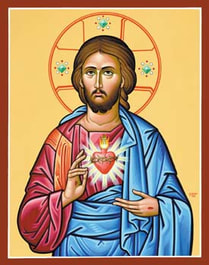 Whenever you think of Christianity, it is next to impossible to overlook the role and importance of love in the story of salvation. God’s love for us is one that is infinitely more enduring than any infatuation or passing attraction. It is one that gives and purifies, sacrifices and yields for the good of another -- again and again and again. God’s love is one that extends through, before, and beyond eternity and is ultimately expressed from Calvary to each and every person, fully, freely, and forever. The Church has dedicated the month of June to a reminder of the depth of God’s love: the devotion to the Sacred Heart of Jesus. In His Most Sacred Heart, we see how absolutely consumed with love God is for us — so much so that He was willing to bear those heinous wounds, false accusations and derisions, and even His death in order to grant salvation for all. Artistic depictions of the Sacred Heart remind us of the torment Christ endured on our behalf: the heart is wrapped in a crown of thorns, pierced, bleeding, and aflame with a cross rising from the tongues of fire. The visible wounds of Christ’s heart reveal His invisible love. Thus, devotion to the Sacred Heart is described as “devotion to the love of Jesus Christ in so far as this love is recalled and symbolically represented to us by His Heart of Flesh.” As creatures that have both soul and body, bodily representations of Christ’s love sometimes touch us in ways that words do not. The Sacred Heart teaches us that authentic love incurs great costs, but it also always gives life. Historically, devotion to the Sacred Heart is believed to have grown from another devotion to Jesus’ body: the Sacred Wounds of Christ from His Passion. Saint Bernard of Clairvaux said that the piercing of Christ’s side revealed His goodness and the charity of His heart for us: “How good and pleasant it is to dwell in the Heart of Jesus! Who is there who does not love a Heart so wounded? Who can refuse a return of love to a Heart so loving?” Other religious and saints, such as Francis of Assisi, have themselves exemplified closeness to the love poured out by Christ’s Five Wounds and Sacred Heart. The devotion as it is most commonly known today is said to have begun with the 1673 appearance of our Lord to St. Margaret Mary Alacoque, a French nun of the Order of the Visitation of Holy Mary. Over a series of visits, Our Lord revealed to St. Margaret Mary the importance of devotion to His Sacred Heart: "Behold the Heart which has so loved men that it has spared nothing, even to exhausting and consuming Itself, in order to testify Its love … But what I feel most keenly is that it is hearts which are consecrated to Me, that treat Me thus. Therefore, I ask of you that the Friday after the Octave of Corpus Christi be set apart for a special Feast to honor My Heart, by communicating on that day, and making reparation to It by a solemn act, in order to make amends for the indignities which It has received during the time It has been exposed on the altars. I promise you that My Heart shall expand Itself to shed in abundance the influence of Its Divine Love upon those who shall thus honor It, and cause It to be honored." In 1856, the Solemnity of the Sacred Heart was officially added to the liturgical calendar — the day before the Memorial of the Immaculate Heart of the Blessed Virgin Mary. The faithful have several options for honoring the Sacred Heart as requested by our Lord:
The Love that Christ continually showers on us should totally consume us. Christ’s death is an infinitely huge debt that we can never repay—but in His infinitely huge capacity to love and be merciful, all our Lord asks in return is our love. As we are invited to share in His Divine Love, we are called to let that love change us to become better disciples and better witnesses. Most of all, let us strive to become authors of great love stories, never ceasing to wonder at the incredible truth that the God of the Universe loves us! The Solemnity of the Most Sacred Heart is also the World Day of Prayer for the Sanctification of Priests. Please pray for the priests in your parish and any other priests who have touched your life! It’s 4:30 in the morning and my husband and I are awoken by cries from our 11-month-old son in his room. He has taken to an early wake-up for quite a few weeks and despite knowing that he’s been sick and teething and that babies simply have no schedule but their own, I think to myself, “Shouldn’t he be sleeping through the night?” My husband brings him to me to nurse and slips back into bed. Although this trial of losing sleep is trivial I pray, “Lord, we have given up everything and followed you.”
The other day we got the news that our car needs another expensive repair. My husband and I analyzed our budget: there’s the mortgage, daycare, food, regular car expenses, and student loans. We also want to have more children and show them the world, and we want to give so much more to our community than we currently are, but where is there room in our constantly strained budget? I express my fear and I cling to the words, “Lord, we have given up everything and followed you.” Today’s Gospel catches us right after a rich man asks Jesus what he must do to inherit eternal life, and “Jesus, looking at him, loved him and said to him, ‘You are lacking in one thing. Go, sell what you have, and give to [the] poor and you will have treasure in heaven; then come, follow me’” (Mark 10:21). I can hear Peter, filled with earnest love and total concern as he looks up to Jesus and begins to say the opening line of today’s Gospel: “We have given up everything and followed you.” He has left his family and career to serve Jesus. He is traveling with these men and learning from Jesus every day. His faith is tested, and he fails multiple times – walking on and beginning to drown in the sea and eventually to deny the Lord not once, but three times over at His Passion. Despite these failings, I imagine the Lord’s tenderness and faithfulness as he looks to Peter and says: “Amen, I say to you, there is no one who has given up house or brothers or sisters or mother or father or children or lands for my sake and for the sake of the gospel who will not receive a hundred times more now in this present age: houses and brothers and sisters and mothers and children and lands, with persecutions, and eternal life in the age to come. But many that are first will be last, and [the] last will be first.” (Mark 10:29-31) This is the promise of the Christian life: the gift of hope that comes with the witness of the Gospel and the life of Christ. Despite our sufferings, trials, and sacrifices, there’s the promise of eternal life with Jesus where every ache of our heart will be healed and every thirst satiated. Consider the fear and hurt, for example, of those who feel called to marriage, but haven’t yet found “the one.” Or how about the tears an infertile couple might shed for all the babies they have never held? God fills these holes and seals them one hundred times over. Even something that seems trivial, such as a failing grade, a mistake at work, or sleep lost during a 4:30 a.m. nursing session – even those losses will be fulfilled in ways that we cannot imagine. It’s hard to fathom how that wholeness is possible in our broken world, but as Jesus reminds us: “All things are possible for God” (Mark 10:27). In contemplating Jesus’ promise to us, this call to the Christian life, and our goal of striving towards heaven, we know that this work is not easy or glamorous, but it can be holy if we let it. In your everyday yeses to sacrifices big and small, God promises you a lifetime with Him. Do not lose hope when you make a sacrifice or you feel the hurt in your heart: it is seen and felt and loved by the Lord. He uses those feelings to bring you closer to Him and His promises. He wants to love you in your sacrifices. The Lord promises to bring His goodness through your holy work as you choose Him each day (Romans 2:6-10). And it is in that love that we can sacrifice with the confidence of Christian hope and gratitude, “Lord, we have given up everything and followed you.” Alyce Shields is a teacher in Washington, D.C. A second wind is often an unexpected gift. Whether it is discovered during a run, study session, or some other activity demanding intense focus and effort, what at first seems daunting and impossible to achieve suddenly becomes possible thanks to newfound strength and endurance. A second wind, while surely appreciated physically or mentally, can also be applied spiritually. As the Church celebrates her birthday on Pentecost Sunday, we can reflect on the incredible gift of the Holy Spirit who was sent by God Himself to provide the fledgling Christian faith a much needed second wind as apostles prepared to bring the Good News of Christ to the entire world.
One of the Gospel readings for Pentecost details our Lord’s promise to send the Holy Spirit to His disciples. In an earlier related chapter from John’s gospel, Christ Himself walks with the disciples and predicts His own Passion. He assures the disciples that they will not be abandoned as orphans, but will share in the very life of the Most Holy Trinity (John 14:15-31)! The consolation and comfort Jesus brought to those gathered in the Upper Room after His death and resurrection surely reminded them of this though He ordered them to not leave Jerusalem until “the promise of the Father” had been sent (John 20:19-23). It would not be until after Christ’s ascension, that the Holy Spirit would be sent upon the disciples and so enable them to carry out the Great Commission of our Lord, “Go therefore and make disciples of all nations, baptizing them in the name of the Father and of the Son and of the Holy Spirit, and teaching them to obey everything that I have commanded you.” While Christ had sent out the disciples to evangelize before (see Luke 10:1-20, cf. Matthew 10), these efforts were limited to “the lost sheep of the house of Israel.” Proselytizing the rest of the world would take place after the rejection of our Lord and would require grace to sustain the disciples through this incredible evangelical endeavor. Today, the faithful are not only entrusted with this mission, but have also been baptized and confirmed with the same Holy Spirit as was promised to Christ’s first followers! The Holy Spirit is truly God and is inseparable from the Father and the Son. Though Christ is seen, it is the Spirit who reveals Him. Thus, both are on a “joint mission” to reveal the visible image of the invisible God (see CCC 689). The Holy Spirit invites us to better know the Father and Son. Each person of the Trinity more fully deepens our understanding of God. As the Catechism says: Now God’s Spirit, who reveals God, makes known to us Christ, his Word, his living Utterance, but the Spirit does not speak of himself. The Spirit who “has spoken through the prophets” makes us hear the Father’s Word, but we do not hear the Spirit himself. We know him only in the movement by which he reveals the Word to us and disposes us to welcome him in faith. The Spirit of truth who “unveils” Christ to us “will not speak on his own.” (CCC 687) The Holy Spirit continuously reveals Christ to us when we make an effort to listen. Similarly, when we recognize and cooperate with the Holy Spirit dwelling within us, we are better able to contemplate Christ’s teachings and the great Mysteries of Faith. When we face discouragement or are unsure of a decision we must make, we are in similar circumstances to those waiting in the Upper Room. The gifts of the Holy Spirit strengthen our faith and helps us to judge our situations prudently. The courage to continue Christ’s mission and not be defeated by discouragement or rejection is not only an incredible witness to the Church, but also a recognition that the Holy Spirit continues to work among us wherever we are in our journey of faith! Just as the Holy Spirit descended upon our Lord at His baptism to start His mission on earth, so too did Christ send the Holy Spirit upon the disciples in the Upper Room as they began their ministry. Like the disciples, let us dare to be open to the Holy Spirit’s activity in our daily lives as a much needed second wind as we continue our Lord’s work so that at the end of our days, we may hear spoken to us, “Well done, my good and faithful servant ... Come, share your master’s joy.” Question for Reflection: Can you recall a moment when the Holy Spirit gave you the courage to continue through a difficult trial? This year, I tried something new for Lent. Instead of giving up sweets or the snooze button on my alarm clock, I felt God calling me to spend more time in prayer with a regular reflection routine. I am someone who has to constantly fill my schedule with things to do and places to go—I knew God was asking for silence in my life. Rather than making an unrealistic commitment during Lent, I selected something I could add to my already established morning and evening routines. I bought a Lenten journal that included a Bible verse and reflection with a corresponding prayer and question for free response. There were a few days I missed an entry and would make it up, but overall I felt I accomplished my Lenten promise and journey. The biggest thing I learned from this Lenten walk with Jesus was the idea of progress and not perfection. As Matthew Kelley says, “we’re imperfect beings striving for perfection, and we have to learn to celebrate our progress.” Becoming more aware of what went on in my day and noticing where I was or was not being my best self made me more aware of God’s presence in my life. I could more easily notice when something in my day was a gift or where He was visibly working on something in my life. As Lent progressed, I found myself yearning to know God in my life more and more. I went to Adoration more, sought out additional reflections through Kelley’s Dynamic Catholic resources, and attended my local women’s group more frequently. I think that’s what Lent should be: being on fire for your faith in God. Our Lenten practices shouldn’t just last for 40 days, but should be 365 days a year—though perhaps not to such a high degree as during Lent. Since Easter, I have continued to journal and have started a gratitude list I add to each day. Here are some thoughts regarding seeking progress and not perfection that I have found helpful to continue working on after Lent:
Question for Reflection: What are some ways your past Lenten journeys have changed your spiritual life after Easter? This Sunday's reading from Luke is from one of my favorite passages in the Gospel. We pick up with the two disciples who just encountered Jesus on the road to Emmaus. Whatever business these disciples had out in the countryside, they abandoned their plans after their encounter with Jesus and ran back to Jerusalem to share what had happened. The Gospel says that “While they were still speaking about this, he stood in their midst and said to them, ‘Peace be with you.’” Based on how abruptly Jesus appears to the rest of the disciples, we can imagine that they were incredulous at what Cleopas and his companion were telling them. As with “Doubting Thomas,” it seems that the other disciples also needed to see in order to believe.
It’s interesting to compare the encounter on the road to Emmaus to the interaction that takes place here. When the two disciples met Jesus on the road to Emmaus, they had no idea it was him. He walked with them, developed a rapport with them, and only then did he challenge their worldview and lack of faith in the promises of God. He gently rebuked them, opened up the Scriptures to them, and then broke bread with them. And it wasn’t until that moment that they truly understood who Jesus was and how he fulfilled the Scriptures: “Were not our hearts burning within us while he spoke to us on the way and opened the scriptures to us?” Jesus was patient, meeting them where they were and letting them understand God’s work at their own pace. When Jesus appears to the rest of the disciples, he seems to appear out of nowhere. They all panic and think he’s a ghost until he proves his physical presence to them: he shows them his wounds and even eats something right in front of them. It seems he has the intent of driving the point home, opening their minds to understand the Scriptures. This time, it’s without rebuke, without judgment or frustration. He instead gives the disciples something to look ahead to: “You are witnesses of these things… I am sending the promise of my Father.” He doesn’t just explain the past, but also hints at what’s to come! I love this passage because it speaks loudly to our tendency to not really take matters of faith to heart. And it’s so easy to do. Even for a person of faith, the Passion, death, and Resurrection of Christ can seem completely outrageous! We can be slow to understand God’s plan and actions in the world and in our lives, especially when they are different from our own. Even saints like Mother Teresa experienced doubt at times. But we can take heart in knowing that, when these times of doubt come up, Jesus will make himself known to us in some way, much like he did on the road to Emmaus and in his appearance to the disciples in Jerusalem. He may not be as explicit as we’d expect; it can come through a word from a friend, a kind gesture from a stranger, or even our own actions toward others. God uses all the experiences and encounters in our lives to invite us to encounter him, too. Just like on the way to Emmaus, he walks with us, befriends us, and shows us the truth. Sometimes when we are slow to understand, he acts more directly and obviously in our lives, as he did with the disciples in Jerusalem. As we continue this joyful season of Easter, let us always listen to those times our hearts are burning within us. It is then that God speaks to us most clearly, if only we pay attention to Him. Question for Reflection: How is God walking with you this Easter season? For some, Palm Sunday was a political event surrounding a political person that led to the greatest, most unexpected revolution the world has ever seen happen. Historically, the week leading up to Jesus’ Passion would have been the time of preparation for Passover, when many Jews from all the surrounding villages were in Jerusalem together. The gospels (Mt 21: 1-11) describe Jesus’ triumphant entrance into Jerusalem to the swaying of palm fronds and shouts of “Hosanna!” These were unmistakable prophetic signs of the Messiah-king, the one many Jews expected would finally overthrow their Roman overlords and re-establish Israel’s reign on earth, perhaps even violently—as a group called the “Zealots” expected. Yet there is a further symbol to this story: Jesus riding on a colt or ass, the sign of a humble and meek king. Jesus did not become the king they expected, but instead, the one God wanted. As Pope Francis said in his 2016 homily on the Feast of Christ the King, “The Gospel in fact presents the kingship of Jesus as the culmination of his saving work, and it does so in a surprising way. ‘The Christ of God, the Chosen One, the King’ (Lk 23:35,37) appears without power or glory: he is on the cross, where he seems more to be conquered than conqueror.” Like Jesus’ followers then, today we are susceptible to temptations of limited expectations. It is possible to see Jesus merely as a political and ethical teacher who died a martyr’s death and nothing else. On the other hand, we might project Jesus’ kingdom to a purely “other-worldly” realm. Since Jesus apparently wasn’t setting up his kingdom on earth (so we assume), we are tempted to sanitize Jesus of any “worldly” political or practical implications, and simply assume political engagement has limited place, or even runs counter to our task of evangelization. As Pope Pius XI wrote in his establishment of the Feast of Christ the King, “It would be a grave error…to say that Christ has no authority whatever in civil affairs, since, by virtue of the absolute empire over all creatures committed to him by the Father, all things are in his power…although he himself disdained to possess or to care for earthly goods, he did not, nor does he today, interfere with those who possess them.” Both interpretations—that Jesus was strictly political or that his work was merely “not of this world”—fail to take seriously not only Jesus’ public ministry and preaching, but the truly earth-shattering consequences of Jesus’ kingship won at the cross. The Catechism of the Catholic Church states that Christ, “exercises his kingship by drawing all men to himself through his death and Resurrection.” Jesus’ death and Resurrection are, simply, God’s victory over the world’s powers of sin and death so as to bring about the restoration of God’s people. To say yes to Jesus’ Resurrection is to say yes to life as part of a new creation and kingdom that starts now. Paschal faith involves the risk of making mistakes, being misunderstood or ridiculed, of not conforming to the expectations of the surrounding culture in order to expect something greater. It involves joining in the kingship of Christ in serving others, something we are able to share in as a result of our baptism. As powers of sin and death today loom heavy on our hearts, it is not enough to “have faith” but to do nothing. Following Christ calls us to witness to our faith in practical ways with full conviction because of Christ’s own experience of suffering, death, and Resurrection that has transformed our fundamental orientation to the world. As Christians, we desire peace, healing, reconciliation, and restoration. We serve our King by building up his kingdom on earth. Pope Francis challenges us, “A people who are holy…who have Jesus as their King, are called to follow his way of tangible love; they are called to ask themselves, each one each day: “What does love ask of me, where is it urging me to go? What answer am I giving Jesus with my life?” For more Lenten and Easter resources, please click here. |
Details
Archives
July 2024
Categories
All
|
About |
Media |
© COPYRIGHT 2024 | ALL RIGHTS RESERVED

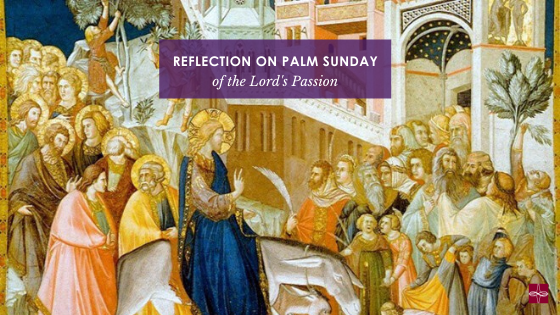
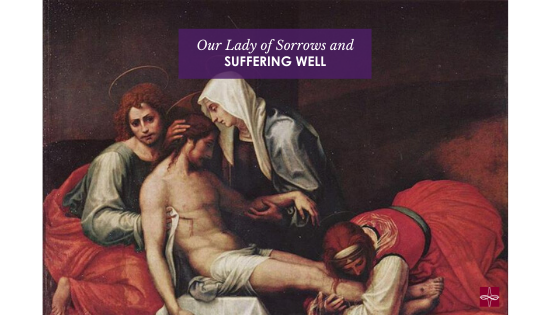

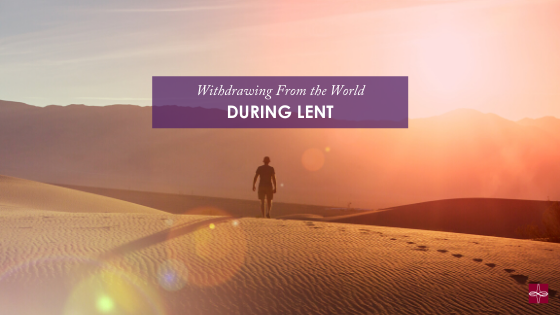



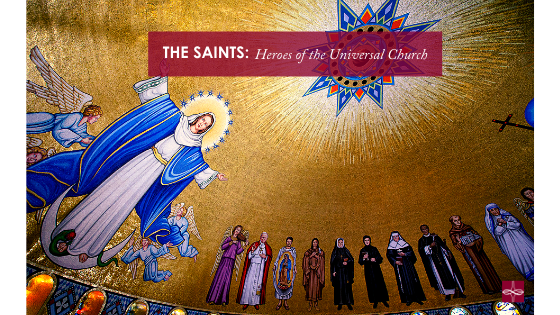

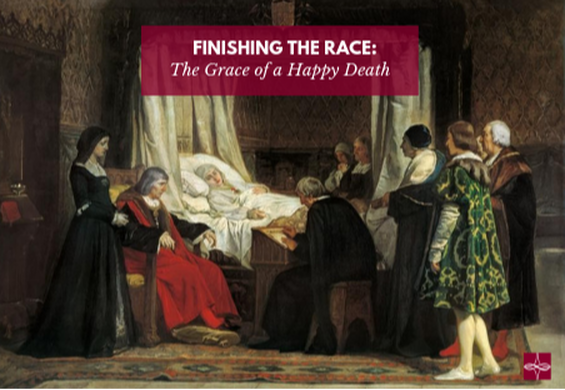

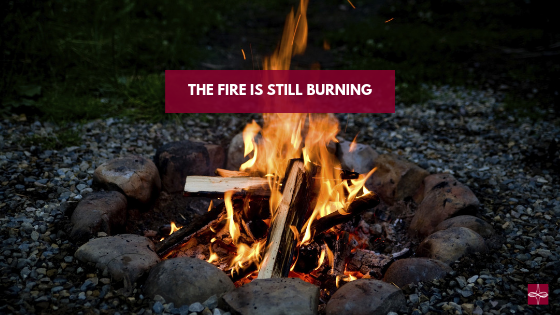

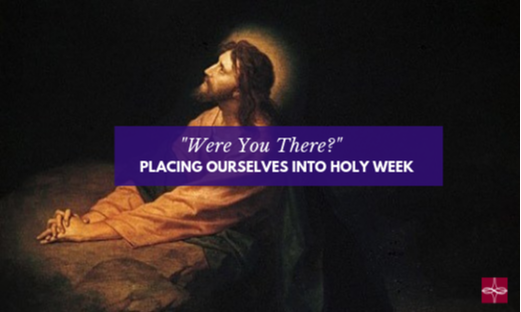

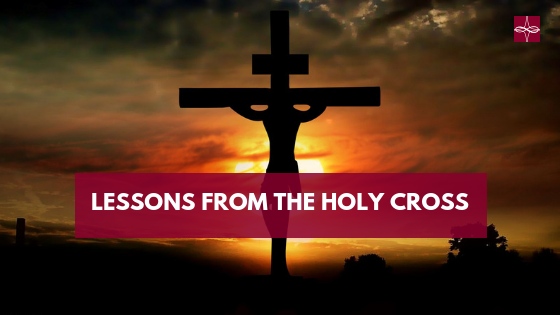
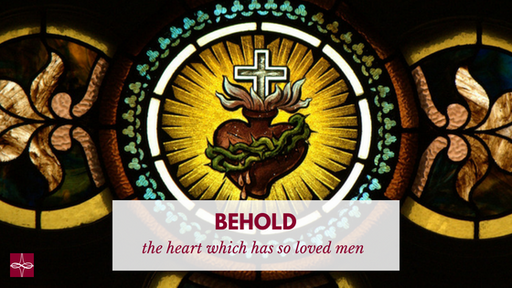

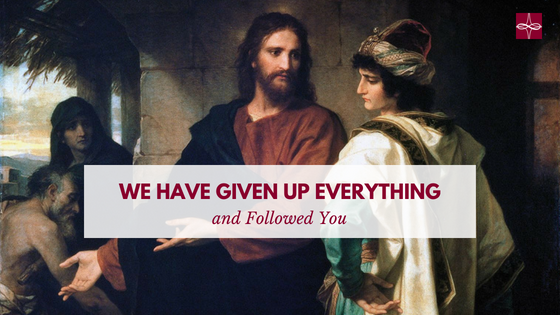
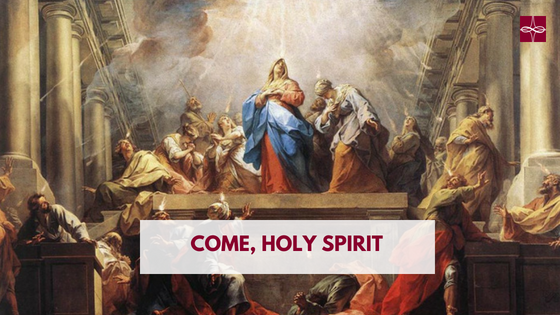



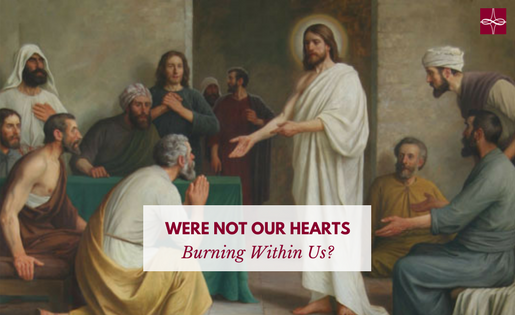

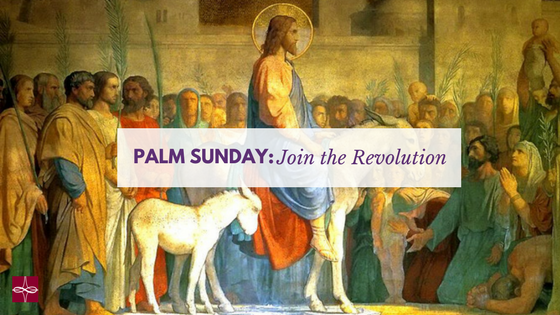

 RSS Feed
RSS Feed